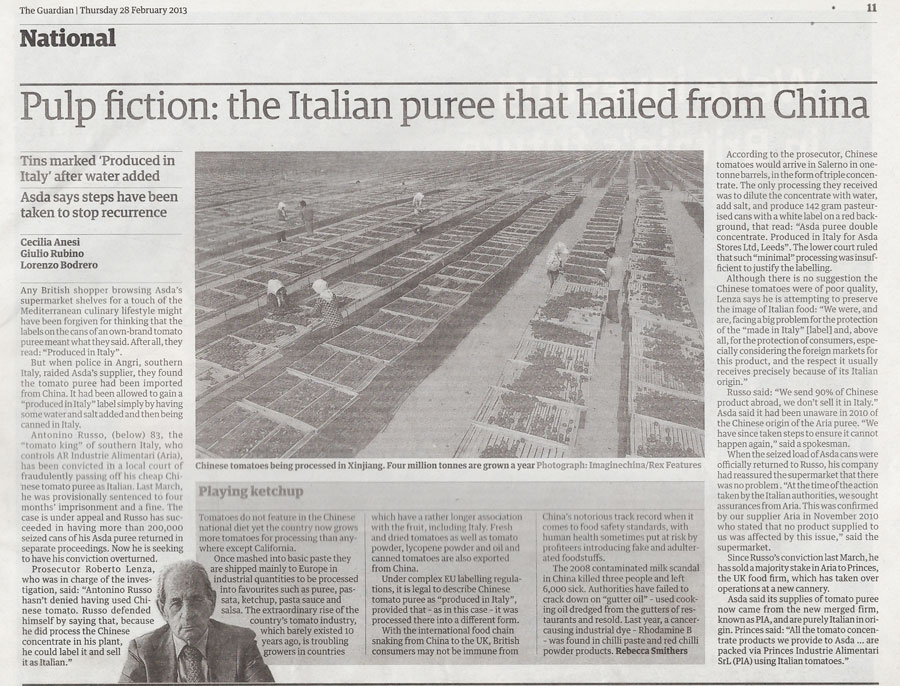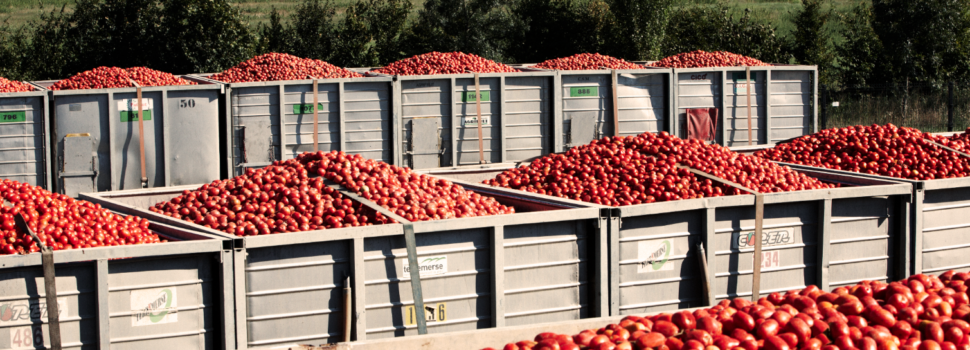
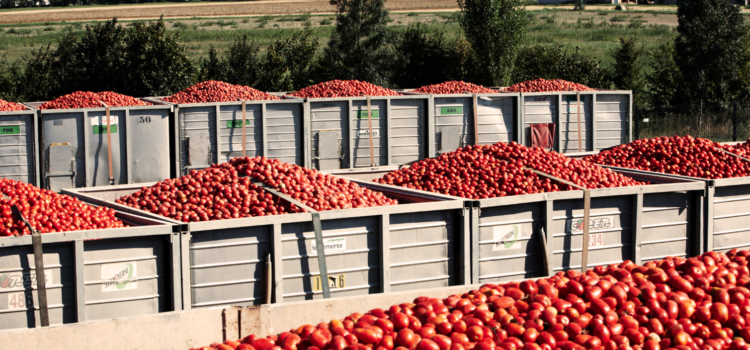
Pulp fiction: the Italian puree that hailed from China
in EnglishInchieste 28/02/2013 Lorenzo Bodrero

by IRPI*
Any British shopper browsing Asda’s supermarket shelves for a touch of the Mediterranean culinary lifestyle might have been forgiven for thinking that the labels on the cans of an own-brand tomato puree meant what they said. After all, they read: “Produced in Italy”.
But that was not to be quite the whole story, thanks to the often opaque world of EU consumer law. When police in Angri, southern Italy, raided Asda’s supplier, they found the tomato puree had been imported from China. It had been allowed to gain a “produced in Italy” label simply by having some water and salt added and then being canned in Italy.
According to a lengthy project by IRPI, an Italian reporters’ group sponsored by the European Fund for Investigative Journalism, the raid led to a bout of jousting through the often impenetrable Italian legal system. Antonino Russo, 83, the “tomato king” of southern Italy, who controls AR Industrie Alimentari (Aria), has been convicted in a local court of fraudulently passing off his cheap Chinese tomato puree as Italian. Last March, he was provisionally sentenced to four months’ imprisonment and a fine. The case is under appeal and Russo has succeeded in having more than 200,000 seized cans of his Asda tomato puree returned in separate proceedings. Now he is seeking to have his conviction overturned.
Under EU regulations, it is legal to describe Chinese tomato puree as “produced in Italy” if it was processed there into a different form. Prosecutor Roberto Lenza, who was in charge of the investigation, said: “Antonino Russo hasn’t denied having used Chinese tomato. Russo defended himself by saying that, because he did process the Chinese concentrate in his plant, he could label it and sell it as Italian.”
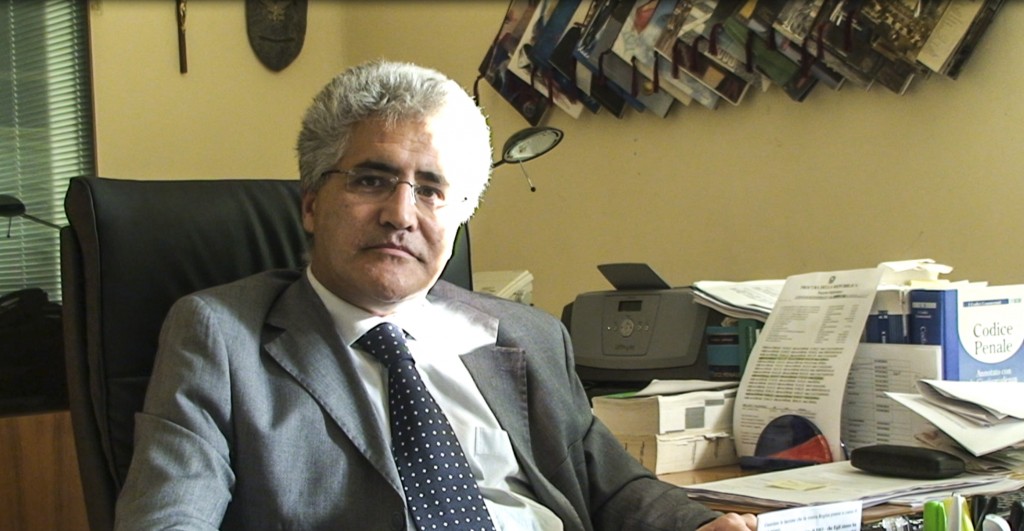
Prosecutor Roberto Lenza in the Procura of Nocera Inferiore. Photo IRPI
According to the prosecutor, Chinese tomatoes would arrive in Salerno in one-tonne barrels, in the form of triple concentrate. The only processing they received was to dilute the concentrate with water, add salt, and produce 142 gram pasteurised cans with a white label on a red background, that read: “Asda puree double concentrate. Produced in Italy for Asda Stores Ltd, Leeds”. The lower court ruled that such “minimal” processing was insufficient to justify the labelling.
Although there is no suggestion the Chinese tomatoes were of poor quality, Lenza says he is attempting to preserve the image of Italian food: “We were, and are, facing a big problem for the protection of the “made in Italy” [label] and, above all, for the protection of consumers, especially considering the foreign markets for this product, and the respect it usually receives precisely because of its Italian origin.”
Russo said: “We send 90% of Chinese product abroad, we don’t sell it in Italy.” He is defiant about the case, saying: “The first time I was cleared of charges, then convicted. But now I have appealed. We are sure we will win, we won before and we will win again.” Asda said it had been unaware in 2010 of the Chinese origin of the Aria puree. “We have since taken steps to ensure it cannot happen again,” said a spokesman.
When the seized load of Asda cans were officially returned to Russo, his company had reassured the supermarket that there was no problem . “At the time of the action taken by the Italian authorities, we sought assurances from Aria. This was confirmed by our supplier Aria in November 2010 who stated that no product supplied to us was affected by this issue,” said the supermarket.
Since Russo’s subsequent conviction last March, he has sold a majority stake in Aria to Princes, the UK food firm, which has taken over operations at a new cannery.
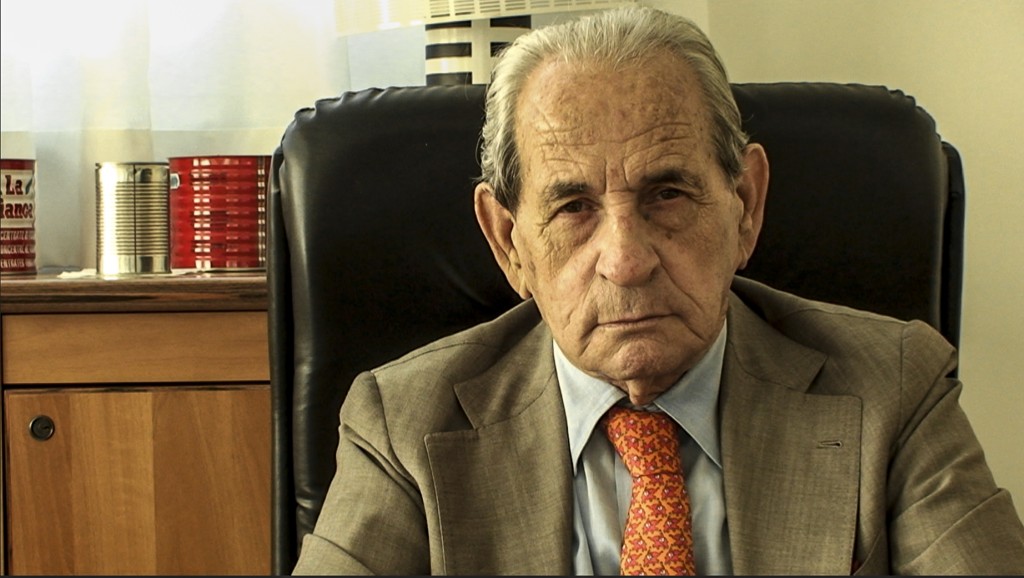
Antonino Russo in A.R. Industrie Alimentari. Photo: IRPI
Asda said its supplies of tomato puree now came from the new merged firm, known as PIA, and are purely Italian in origin. Princes said: “All the tomato concentrate products we provide to Asda … are packed via Princes Industrie Alimentari SrL (PIA) using Italian tomatoes at our Foggia site in Italy.”
Chinese tomatoes are largely grown in state-controlled plantations in the province of Xinjiang, where many of the natives are Kazakhs or Uyghurs, and in Inner Mongolia. China produces about 4m tonnes of fresh tomatoes annually.
Qin Yelong, president of Cofco Tunhe, one of the main tomato processors of China, said: “Europe is the major destination for China to export its tomato paste.”
“Italy has been the spark for China’s production,” said Valerio Guareschi, sales manager of Consorzio Casalasco del Pomodoro, one of the main tomato processors in northern Italy.
“After we provided the Chinese with know-how and industrial facilities, the southern Italian canners began buying huge quantities of Chinese triple concentrate.”
* This article is part of a wider investigation by IRPI on food frauds. This first chapter was published on The Guardian on February 27, 2013. The team would like to thank Sam Park for helping out in tracing the products in the UK, and Leo Sisti for the editorial support during the writing of the investigation.
